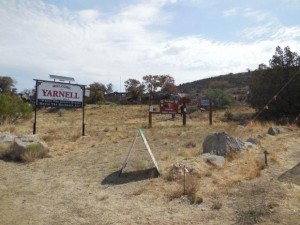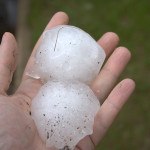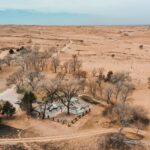State workplace safety officials probing the deaths of 19 firefighters in an Arizona wildfire were denied access to key witnesses as they worked to determine the tragedy’s cause, according to a letter from a federal agency.
Investigators with the Arizona Division of Occupational Safety and Health were not allowed to interview members of another fire crew who were working the same blaze. The U.S Department of Agriculture, which oversees such hotshot crews, determined the access might lead to confidential information being released to the public, The Arizona Republic reported Friday based on a letter it obtained from the USDA to state officials.
The Arizona State Forestry Division was fined $559,000 after the ADOSH investigation found willful and serious lapses of workplace safety rules. The Forestry Division has 15 working days to appeal.

The 19 members of the Granite Mountain Hotshots died June 30 when they were overrun by flames after a thunderstorm shifted winds and sent the fire racing in their direction. Only one crew member, who was serving as a lookout, survived.
The blaze destroyed more than 100 homes and burned 13 square miles before it was fully contained July 10.
As part of its probe, ADOSH wanted to interview members of the Blue Ridge Hotshots who had been working near the Granite Mountain crew until conditions worsened and they pulled out. But the Department of Agriculture denied the investigators access.
“An interview of Forest Service employees poses a serious risk of inadvertent or inappropriate release of protected private or confidential information,” read the October letter from the federal agency to ADOSH.
The state team was provided with redacted statements from the crew, but the documents were “useless in ADOSH’s investigation,” according to the state investigative report released earlier this week.
The probe determined state fire officials put protection of property ahead of firefighter safety, even though they knew the area couldn’t be defended. The report found commanders lacked key personnel at critical times, including officers focused only on safety, and that they knew a thunderstorm was brewing that likely would shift winds and push the fire toward crews.
The ADOSH report stands in stark contrast to an earlier investigation commissioned by the Forestry Division, which found that state fire officials communicated poorly but followed proper procedures. It laid no blame for the fatalities.
Jim Furnish, a retired U.S. Forest Service deputy chief who led an investigation into a fatal 2003 fire, said the information from the other hotshot crew could have provided crucial details that not only would have helped determine why the men died, but might have helped prevent similar tragedies in the future.
“My view was always philosophical: We are a public agency, we manage public lands, and our employees are paid by public taxes, and these investigations ought to be wide open,” Furnish said.
Surviving family members expressed outrage over the federal government’s failure to provide the state with access to all pertinent information in their investigation.
“How is it that anyone could tell OSHA you can’t speak to them and you can’t ask them those things?” said Juliann Ashcraft, whose husband, Andrew, died in the blaze. She said litigation might be the only way to get at all the answers, but she stopped short of saying she planned to sue.
The mother of one of the firefighters has indicated she plans to file a $36 million negligence lawsuit against several agencies involved in managing the fire.
Experts say it’s generally difficult to overcome a ban on suing employers for wrongful death under the state’s workers’ compensation system. But they noted that the ADOSH report clearly finding key failures in managing the fire might make it easier to pursue such claims in court.
Was this article valuable?
Here are more articles you may enjoy.

 CoreLogic Report Probes Evolving Severe Convective Storm Risk Landscape
CoreLogic Report Probes Evolving Severe Convective Storm Risk Landscape  Texas Among Several States Facing New Fire Risks: Weather Watch
Texas Among Several States Facing New Fire Risks: Weather Watch  Vintage Ferrari Owners’ Favorite Mechanic Charged With Theft, Fraud
Vintage Ferrari Owners’ Favorite Mechanic Charged With Theft, Fraud  Harvard Study Again Stirs the Pot on Demotech Ratings of Florida Carriers
Harvard Study Again Stirs the Pot on Demotech Ratings of Florida Carriers 